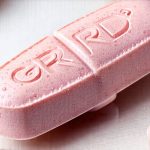Digestive disorders are incredibly common, impacting millions worldwide and ranging from mild discomfort to debilitating chronic conditions. Often dismissed as simple ‘upsets’, these issues can significantly reduce quality of life, affecting nutrient absorption, energy levels, and even mental wellbeing. Many conventional treatments focus on symptom management – antacids for heartburn, anti-diarrheals for loose stools – but frequently fail to address the root cause of the digestive dysfunction. A growing area of interest in addressing these underlying issues is enzyme therapy, which seeks to restore optimal digestive function by supplementing missing or insufficient enzymes needed to break down food effectively. This approach isn’t a ‘one size fits all’ solution, and understanding its nuances is key to potentially improving digestive health.
The human digestive system is a remarkably complex process involving multiple organs and a cascade of enzymatic reactions. Ideally, our bodies produce sufficient quantities of necessary enzymes – amylase for carbohydrates, protease for proteins, lipase for fats – to thoroughly dismantle food into absorbable nutrients. However, factors such as age, diet, stress, illness, and certain medical conditions can disrupt this delicate balance, leading to enzyme deficiencies. When digestion is compromised, undigested food particles can ferment in the gut, causing bloating, gas, abdominal pain, and potentially triggering inflammation. Enzyme therapy aims to alleviate these symptoms by providing external enzymes that assist the body’s natural digestive processes, easing the burden on an already stressed system and promoting better nutrient absorption. It’s important to note that this is a supportive approach best used in conjunction with dietary adjustments and lifestyle modifications.
Understanding Digestive Enzymes
Digestive enzymes are biological catalysts – substances that speed up chemical reactions. In our bodies, they’re essential for breaking down the macronutrients (proteins, carbohydrates, and fats) we consume into smaller molecules that can be absorbed into the bloodstream. Different enzymes target different food components: amylase breaks down starches; protease tackles proteins; lipase handles fats; lactase specifically digests lactose (milk sugar); and cellulase assists in breaking down plant fiber. A deficiency in any of these enzymes can lead to specific digestive symptoms. For example, a lack of lactase leads to lactose intolerance, while insufficient protease can result in difficulty digesting protein-rich foods. The key is recognizing that enzyme deficiencies aren’t always absolute – they can be relative, meaning the body produces some enzymes but not enough to efficiently process certain foods, especially when consuming large meals or diets rich in specific nutrients.
Enzyme supplements are typically derived from plant or fungal sources and are formulated to mimic the enzymes naturally produced by the human body. These supplements come in various forms – capsules, tablets, powders, even liquids – and can be taken before, during, or after meals depending on the type of enzyme and the individual’s needs. It’s crucial to understand that enzyme potency varies between brands, so choosing a reputable manufacturer with quality control measures is vital. Furthermore, many enzyme supplements include additional ingredients like probiotics or herbal extracts designed to further support digestive health. The effectiveness of enzyme therapy also hinges on several factors, including the underlying cause of the digestive issue, the severity of the deficiency, and the individual’s overall health status.
Enzyme supplementation isn’t intended as a long-term fix for all digestive issues; rather it serves as a tool to support digestion while addressing the underlying causes – be that dietary habits, stress levels, or underlying medical conditions. Think of it like providing temporary assistance to allow the body to heal and restore its natural digestive capabilities. Overreliance on enzymes without making necessary lifestyle changes may mask symptoms without resolving the root problem.
Common Digestive Disorders Benefitting from Enzyme Therapy
Several common digestive disorders have shown potential benefit from enzyme therapy, though individual responses can vary significantly. Irritable Bowel Syndrome (IBS), characterized by abdominal pain, bloating, gas and altered bowel habits, often involves issues with carbohydrate malabsorption. Supplementing with enzymes like alpha-galactosidase (to break down complex carbohydrates in beans and vegetables) or lactase (for dairy intolerance) can help reduce these symptoms for some individuals. Similarly, those suffering from Small Intestinal Bacterial Overgrowth (SIBO) may find enzyme therapy helpful as it assists in breaking down food, reducing the amount of undigested material available for bacteria to ferment, thus lessening gas and bloating.
Pancreatic insufficiency is a more serious condition where the pancreas doesn’t produce enough digestive enzymes. This can occur due to chronic pancreatitis, cystic fibrosis, or surgical removal of part of the pancreas. In these cases, enzyme replacement therapy – high-dose pancreatic enzyme supplements – is often essential for proper digestion and nutrient absorption. Finally, individuals with Exocrine Pancreatic Insufficiency (EPI) which means the pancreas does not produce enough enzymes to digest food properly may find significant relief from supplemental enzymes. This condition can arise due to various factors including chronic pancreatitis or cystic fibrosis.
- Step 1: Identify potential enzyme deficiencies based on symptoms and dietary patterns.
- Step 2: Consult with a healthcare professional to determine appropriate enzyme supplementation.
- Step 3: Start with a low dose and gradually increase as needed, monitoring for improvements in symptoms.
- Step 4: Combine enzyme therapy with dietary changes and lifestyle modifications for optimal results.
Considerations & Precautions When Using Enzyme Therapy
While generally considered safe, enzyme therapy isn’t without potential considerations and precautions. Some individuals may experience mild side effects like nausea, diarrhea, or stomach upset, particularly when starting high doses. These side effects are usually temporary and can be minimized by gradually increasing the dosage. It’s also important to note that enzyme supplements can interact with certain medications, such as blood thinners and antacids, so discussing potential interactions with a healthcare professional is crucial. Furthermore, individuals with allergies to specific plant or fungal sources should carefully review the ingredients list of enzyme supplements before use.
Enzyme therapy isn’t a substitute for proper medical diagnosis and treatment. If you’re experiencing persistent or severe digestive symptoms, it’s essential to consult with a doctor to rule out underlying medical conditions. Additionally, individuals with pancreatic disorders should be monitored by a healthcare professional while undergoing enzyme replacement therapy. Self-treating without professional guidance can potentially delay appropriate care. It’s also vital to choose high-quality enzyme supplements from reputable manufacturers that adhere to good manufacturing practices (GMP) to ensure potency and purity.
Finally, remember that enzyme therapy is just one piece of the puzzle when it comes to digestive health. A holistic approach encompassing a balanced diet rich in whole foods, regular exercise, stress management techniques, and adequate hydration is essential for long-term wellbeing. Addressing underlying causes such as food sensitivities or gut dysbiosis will yield more sustainable results than relying solely on enzyme supplementation.
Optimizing Enzyme Therapy for Best Results
To maximize the benefits of enzyme therapy, it’s important to personalize your approach based on individual needs and circumstances. Start by identifying which enzymes might be most beneficial based on your dietary habits and symptoms. For example, if you frequently experience bloating after eating dairy products, a lactase supplement could be helpful. If you struggle with digesting fatty foods, lipase may be the enzyme of choice. Many individuals benefit from a broad-spectrum enzyme formula that contains a blend of amylase, protease, and lipase to address multiple food components.
Timing is also crucial. Taking enzymes immediately before or during meals allows them to work most effectively as food enters the digestive system. However, some individuals may prefer taking them after meals if they experience side effects. Experiment with different timings to determine what works best for you. Beyond supplementation, consider incorporating enzyme-rich foods into your diet – pineapple (bromelain), papaya (papain), mangoes, and fermented foods like kimchi or sauerkraut naturally contain digestive enzymes.
Furthermore, remember that gut health plays a significant role in enzymatic function. Supporting a healthy microbiome through probiotic-rich foods and supplements can enhance digestion and nutrient absorption. Addressing stress levels and managing inflammation are also crucial as these factors can negatively impact digestive processes. Enzyme therapy should be viewed not just as a supplement but as part of a comprehensive strategy for restoring and maintaining optimal digestive health, working in harmony with other lifestyle interventions to achieve lasting results.


















